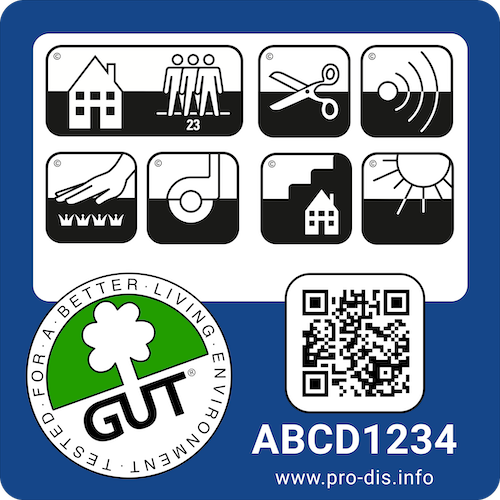Indoor Air Quality
Indoor Air Quality
As a result of improved building insulation and consequently the increased incidence of airtight buildings, there is less exchange between used indoor air and fresh outdoor air. Therefore it is essential that emissions are limited from the outset to remove any possibility of increased indoor air pollution.
Textile floor coverings should only have low levels of emissions.
Indoor air pollution can be caused by a complex mixture of substances such as fibres, particles, radon, microbiological substances, allergens, tobacco smoke and other combustible products. In addition, indoor air also contains formaldehyde and VOC’s such as acetone, benzene, toluene, cyclohexane, n-hexane, and other solvents that can be emitted by normal building materials such as paints, adhesives, furniture, and any other decorative items. As a result of relatively recent improvements in building insulation, the exchange between stale indoor air and fresh outdoor air has been significantly reduced, and as a result, the concentration of indoor pollutants has increased. It is therefore increasingly important to only use building materials with low emissions. This is particularly true for recently installed floor coverings which usually account for the largest single area of a room. Equally important are the materials (adhesives) used during installation, as these should also have “very low emissions“.
GUT-tested carpets are low in emissions
Since 1990, GUT has stood for environmental benchmarking and set standards for the textile floor covering industry
Founded in Aachen in December 1990 by leading European carpet manufacturers, GUT has represented the continuous development of environmental standards in the textile floor covering industry for 30 years. Any products which have a GUT label are guaranteed to meet the high environmental standards as laid out by the strict GUT criteria. GUT strives to protect the consumer and the environment by setting strict criteria for all products manufactured in Europe with a focus on health and safety measures which include pollutants, odours and VOC’s.
GUT Label
The GUT- PRODIS label was developed in partnership with ECRA to create a uniform labelling system for textile floor coverings across Europe. It included physical tests as well as performance standards and was based on European test standards. The latest Product Passport integrates performance and environmental data and still based on European test standards. Each product has a unique internal ID number which identifies the manufacture and the specific product. By using the unique 8 digit licence number, which can be retrieved using a QR code, the details of each product are transparent and easily available to the consumer.
For more details please visit the GUT webpages gut-ev.de or gut-prodis.eu

